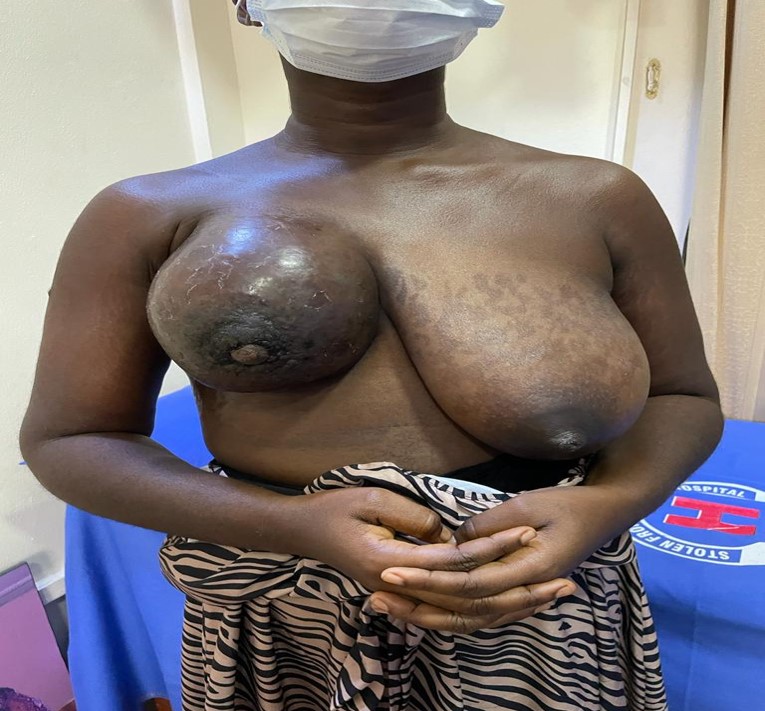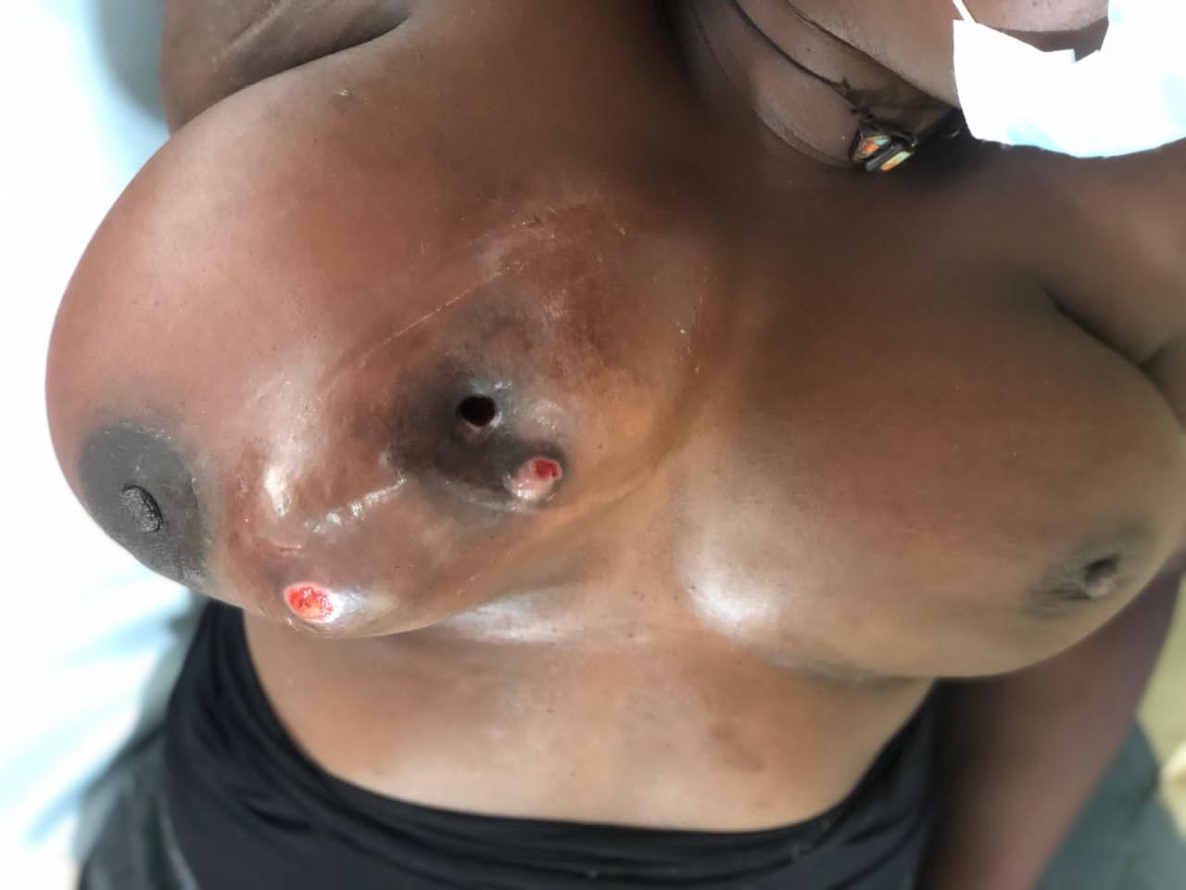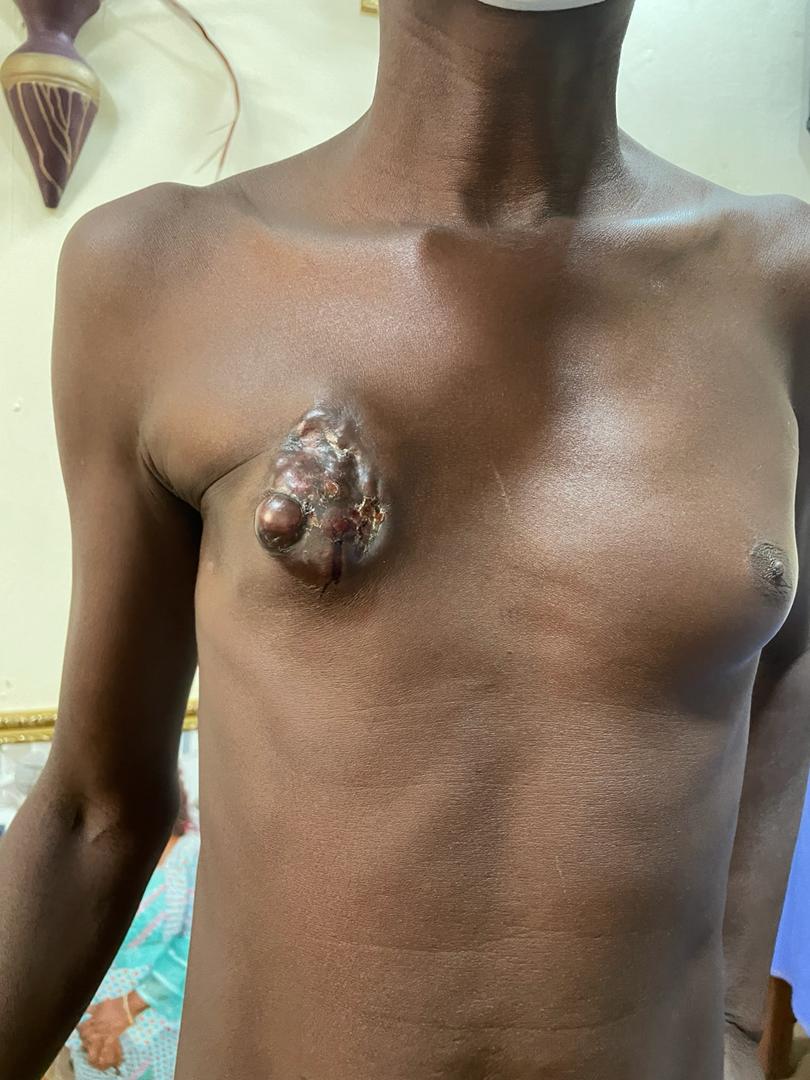Breast Cancer Situation in Ghana
In Ghana, breast cancer accounts for 16% of all cancers making it a great public health concern 3. As the number one killer of women in society curtailing the dreams and potentials of those affected, its effect is felt by their entire family taking into consideration that most of the patients have children and other dependents. In general, about 4,650 cases are recorded annually in Ghana with 2,060 of them dying (GLOBOCAN). Previous studies have revealed that there has been an increase in breast cancer cases in Ghana over the decade 4. According to GLOBOCAN, the estimated age-standardized incidence rates (Worldwide) in 2018, for breast cancer among women of all ages in Ghana is 51.5, which was relatively higher than many African countries. According to the Ghana Breast Health Study, mean age for Breast cancer in Ghana is 49 years, which is younger than the mean age of 62 years for the Caucasians. Nearly 70% of women diagnosed with breast cancer in Ghana are in advanced stages of the disease due especially to low level of awareness, resulting in limited treatment success and high mortality rate. With limited epidemiological studies on breast cancer in Ghana, the aim of this study is to create awareness of the disease and educate individuals in endemic communities to understand the pattern of breast cancer distribution for prevention, education, early detection, treatment and palliative care.
The problem
The Significance
As a serious health issue, breast cancer impacts significantly on the psychological posture and the social relations of the affected and his/her family. In Ghana, just like many African societies serious health problems have some religious connotations. Therefore, cancer patients – depending on the definition of their condition – may ‘shop around’ consulting allopathic practitioners, faith healers and traditional practitioners in the quest for therapy. This plural health-seeking behaviour may pose serious problems for therapy management in the long term which could have been prevented with early detection. Therefore, the overall goal of BCI is to carry out community outreach and engagement programs for individuals with high disparities in high breast cancer endemic areas in Ghana and even beyond. BCI’s outreach programs are led by scientists and medical personnel from the Peace and Love Hospital, Kumasi, Ghana and staff from Breast Care International. This is necessary because of the increasing breast cancer reported cases from this part of Ghana.
Myths & Misconceptions
In Ghana, there are a lot of myths and misconceptions about breast cancer which contribute to the late stage presentation. Some of these myths and misconceptions are:
- Breast Cancer is not curable
- Breast Cancer is caused by witchcraft or evil spirits
- Breast Cancer is a Spiritual disease
- Breast Cancer is by fate;
- It results as a curse on a family
- It’s the result of a person’s failure
- That women die from Mastectomy
- Breast Cancer is Stigmatized
Barriers
- Lack of Awareness
- Inadequate/Bad Treatment
- Cost
- Distance
- Lack of counselling
- Lack of Support
- Poverty
- Fear
Our Steps to Stop Stigma
Key among our greatest weapons in the fight against breast cancer in Ghana are education and awareness creation. Majority of our women do not seek EARLY treatment because of the lack of knowledge, stigma and misinformation about the disease. Even more women seek non-medical treatment options allowing breast cancer to metastasize (spread to other organs) before seeking medical intervention. This means women die needlessly.
We are committed to reaching every woman in Ghana with the message that early detection and prompt action is the best protection, and that education and awareness creation are the most important remedies to the shame that surrounds this highly treatable condition.



